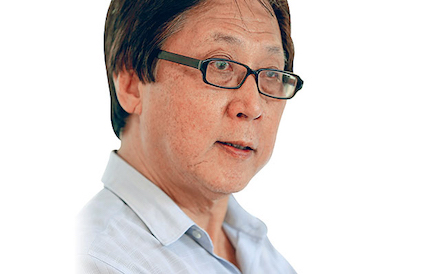BAP is alive and thriving in Malaysia

Bullshit is not only difficult to debunk but requires considerable time and effort in combating. This is especially the case because of the echo chamber effect that emerges after the first posting of the BS.
Lim Teck Ghee, The Sun Daily
IN 2013, Alberto Brandolini, an Italian programmer, formulated his Bullshit Asymmetry Principle (BAP) aka Brandolini’s law which states: “The amount of energy needed to refute bullshit is an order of magnitude bigger than to produce it”.
The significance of this principle is that examples can be found all over the world. It is also found at work in Malaysia so much so that the products from that process may be regarded as the glue that binds us as a nation.
In writing this, I am not trying to run down the country.
Bullshitting has sometimes been described as an art form since it is not considered by its exponents as exactly lying. They see it as simply taking liberties with facts or presenting the truth in a slanted way. It is also sometimes compared with saying little or nothing at all while giving the appearance of great wisdom.
As W. C. Fields, the well-known American comic argued “If you can’t dazzle them with brilliance, baffle them with bullshit”. The converse of this quote is equally apt: “If you can’t baffle them with brilliance, dazzle them with bullshit”.
Both constructs seem to work well. It is working in the United States under Trump. Here, in Malaysia, until the shit had hit the fan we had one of the longest elected governments in the world and its vocal supporters take bullshitting to a fine art.
Producers of verbal or written bovine stool – the physical item is a useful waste product when properly applied – in our country traditionally come from several quarters. They include politicians, journalists and members of the business community who provide half-truths or engage in spinning rather than give out factual and truthful information or news.
For the first two groups, perhaps BS is part of the occupational hazards to master to make headway in their careers. For the business community, public relations and advertising by polishing the truth is often part of their second if not first nature.
The grudging admiration with which many Malaysians regard prominent or successful figures in the public eye who engage in rhetorical chicanery can be seen in the use of the term “bullshit artist” or “con-sultan” when they refer to these personages.
These terms of endearment have been applied to Jho Low, one of the finest, if not the finest, practitioner of BS the country has ever known.
Although political BS has long been found in Malaysia, we are seeing many newcomers now engaged in this activity. These new producers are a mixed group. They include professional mercenaries such as cyber troopers, trolls, academicians and members of political parties; they also include well meaning or concerned citizen groups and individuals active in voicing their views through Facebook, Twitter and WhatsApp.
The results are not surprising. One is that we now have a daily deluge of BS standard revelations, assertions or postulations. Updated several times a day by news portals and blogs that have an interest in seeing their subscriber base remain connected and tantalised, some of the issues posted – even if they do not qualify as BS grade – amount to sensationalistic news and opinions that are politically titillating at best or pandering to prejudice and hatred at worst.
The aftershock or ripple effects of the initial BS production are what Brandolini’s law explains and highlights. Put simply bullshit is not only difficult to debunk but requires considerable time and effort in combating. This is especially the case because of the echo chamber effect that emerges after the first posting of the BS.
Experts now agree that though social media has greatly enhanced our capacity to enjoy the freedom of expression, at the same time the phenomenon of its echo chamber effect means that political beliefs and allegiances are amplified or strengthened by repetition within relatively closed systems.
This is demonstrated in many news portals and blog-sites where readers not only seek out information which reinforce or confirm their views but also frequently add in their two cents worth in the discussion section for good measure. The net result is that political and social polarisation and extremism is amplified but not reduced. This consequence is problematic and even dangerous when the extremism on both sides of a racial or religious divide degenerates with offensive language and the exchange of insults and disparaging claims.
This real danger of BAP in Malaysia also leads me to propose a refinement to the application of the law for the country.
This is that the higher up the political and social status of the BS producer, the greater the amount of energy required in refuting it.
Based on this refined principle, my list of the top recent contenders – not in ranking order – for the BAP are:
» ICERD ratification will undermine the Malay and Muslim position
» More and not less religion in the school curriculum will enable our younger generation to help the nation advance
» Corruption in the civil service has dropped to a “very, very low” level since the new government came to power
» Sekolah Jenis Kebangsaan are the root cause of national disunity
» Christmas greetings should or should not require a legal opinion
Readers are encouraged to share their choice of issues (and personalities associated with them) which they feel should be included in our truly Malaysian BAP list.

